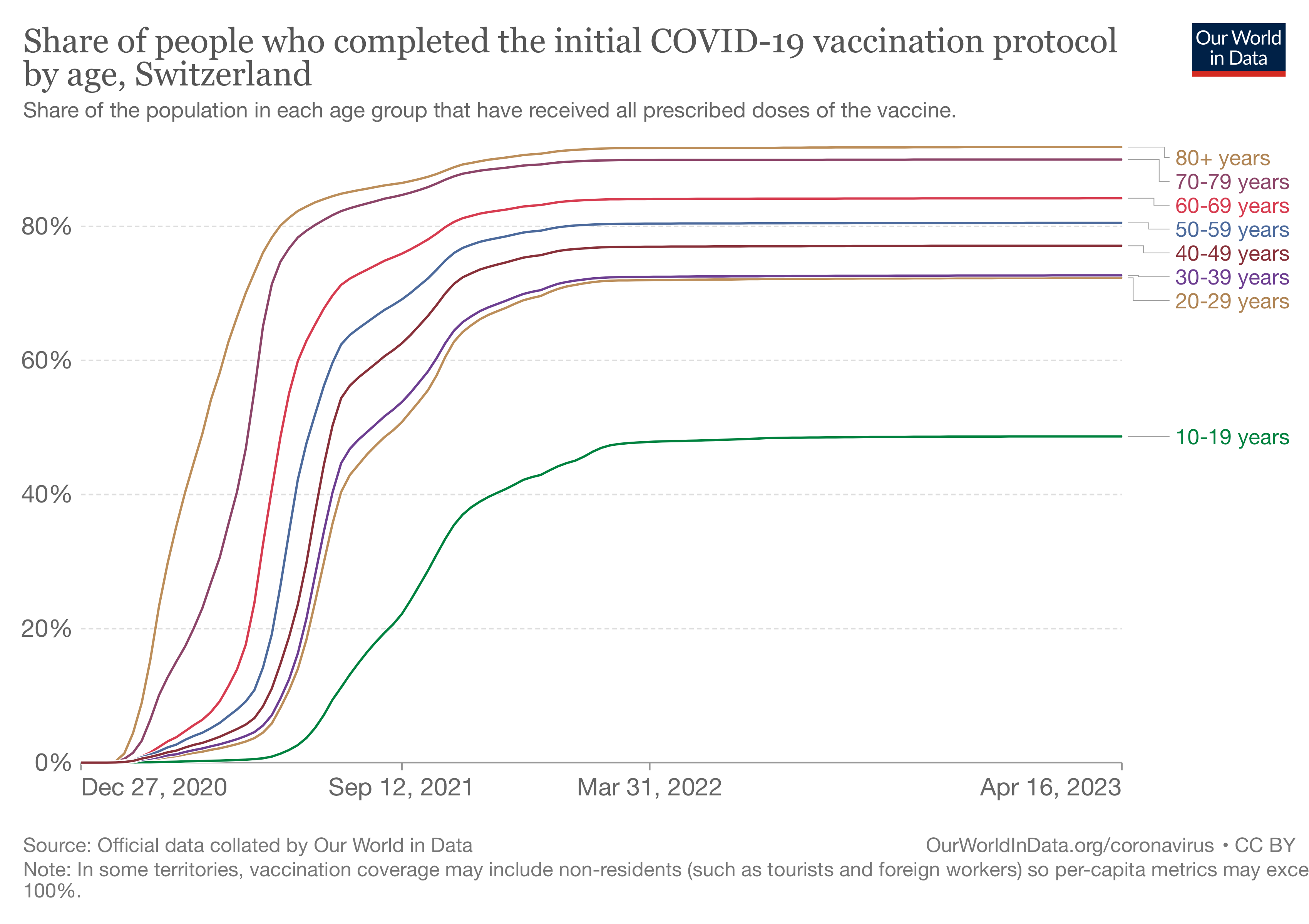
Factually inaccurate: Liability protections for the COVID-19 vaccine are the same as for other vaccines and medicinal products in Switzerland. Doctors in Switzerland aren’t personally liable for COVID-19 vaccine injuries, contrary to online claims.

FULL CLAIM: “Switzerland stops #CovidVaccines: All vaccine recommendations withdrawn; doctors can now only administer vaccine in unique cases. How many medical professionals will now be giving these jabs if they are personally legally liable for #vaccineinjuries ?”
REVIEW
More than two years into the COVID-19 pandemic, much of the world’s population has developed immunity to the disease either through vaccination or infection, prompting public health authorities to revise COVID-19 vaccine recommendations.
In March 2023, the World Health Organization updated its guidance “to reflect the impact of Omicron and high population-level immunity due to infection and vaccination”. This update balanced the need to prioritize groups that are at the greatest risk of death and severe disease from COVID-19, as well as vaccine cost-effectiveness, calling upon countries to assess whether vaccination of low-risk groups is still necessary in their context.
Similarly, Switzerland updated its vaccine recommendations in April 2023. The Swiss Federal Office of Public Health announced that “In principle, no COVID-19 vaccination is recommended for spring/summer 2023. People at especially high risk can receive a vaccination following an individual consultation with their doctor.”
The recommendation prior to this was: “We strongly recommend that all vulnerable people get a booster in autumn/winter 2022/2023. Everyone else aged 16 or over can also get a booster. This is particularly recommended for health professionals and carers of vulnerable people.”
However, those opposing COVID-19 vaccination circulated the new Swiss recommendation as evidence that the COVID-19 vaccines are unsafe.
One example is this tweet by Anthony Hinton, a surgeon and a member of the anti-vaccine Health Advisory and Recovery Team (HART) Group that is known for publishing medical misinformation. The tweet cited an article by the Austrian website Report 24, itself part of a German-language disinformation network, claiming that “Switzerland stops #COVIDvaccines” and asking “How many medical professionals will now be giving these jabs if they are personally legally liable for #vaccineinjuries?” This was retweeted more than 2,200 times and received more than 5,000 likes.
Another example is this Facebook post by former paramedic John Larter, who ran for a seat in the Australian Senate in 2022, pointing to COVID-19 vaccines as “unsafe and ineffective”. The post also contained a screenshot of the Report 24 article, translated into English.
However, the claim that the updated Swiss recommendation was motivated by the COVID-19 vaccines’ lack of safety is false. In fact, the Federal Office of Public Health explained that this change was due to the reduced danger posed by the virus at this point in time:
“Nearly everyone in Switzerland has been vaccinated and/or contracted and recovered from COVID-19. Their immune system has therefore been exposed to the coronavirus. In spring/summer 2023, the virus will likely circulate less. The current virus variants also cause rather mild illness.”
Indeed, the majority of the Swiss population has been fully vaccinated, as the graph below by Our World in Data showed (Figure 1).

Figure 1. Proportion of people who completed the initial COVID-19 vaccination protocol in Switzerland. Source: Our World in Data. Data retrieved on 18 April 2023.
Furthermore, the Office stated that the recommendation would be evaluated for autumn 2023 and changed accordingly. Therefore, the new recommendation doesn’t constitute a permanent halt or ban of COVID-19 vaccines.
Amesh Adalja, a senior scholar at the Johns Hopkins Center for Health Security, told AFP that “The Swiss government’s guidance is for now — it’s not retroactive — and can only be interpreted in the context of the widespread population immunity that exists in Switzerland today in which continued vaccination of low-risk persons may be of marginal value”.
Under the FAQs, the Office’s website also stated that “The vaccines administered in Switzerland are safe and effective. As is the case with all medications, vaccines can cause side effects. They are usually mild and of short duration”.
Hinton’s claim that doctors in Switzerland are now personally liable for COVID-19 vaccine injuries is false. The Office’s website states that:
“The usual liability rules that apply to other medicinal products and vaccines also apply to the COVID-19 vaccination. Liability for vaccination damage could fall to the vaccine manufacturer (product liability), the vaccination centre (agent’s contract liability or state liability) or, on a subsidiary basis, the federal government.”
In summary, this is yet another anti-vaccine claim that involves distorting information in a manner that conveys a false impression of COVID-19 vaccine safety.


